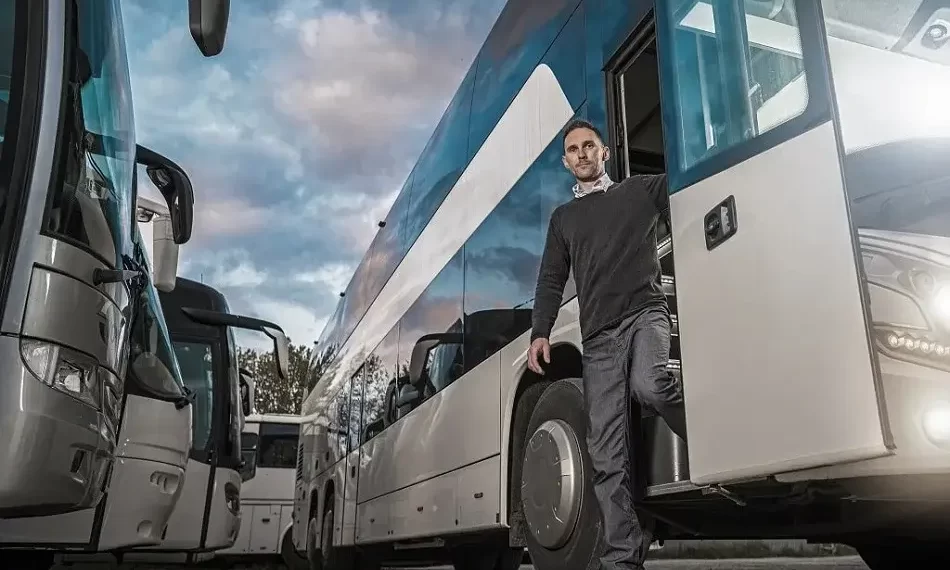In the dynamic landscape of transportation, modern charter bus services have undergone a remarkable transformation, largely influenced by technological advancements. This article delves into the crucial role that technology plays in shaping and enhancing contemporary charter bus services.
Table of Contents
Evolution of Charter Bus Services
Charter bus services have come a long way from their humble beginnings. Originally rooted in traditional transportation methods, the industry has gradually embraced technology, marking a pivotal shift towards modernization.
Key Technological Advancements
GPS Tracking Systems
One of the fundamental technological additions to charter bus services is the integration of GPS tracking systems. These systems not only provide real-time location information but also contribute to route optimization, improving overall efficiency.
Online Reservation Platforms
Modern travelers seek convenience, and online reservation platforms have revolutionized how passengers book charter bus rental services. This digital shift has streamlined the booking process, making it efficient and user-friendly.
Smart Fleet Management
Efficient fleet management is vital for the success of charter bus services. Smart fleet management systems help monitor and optimize vehicle performance, leading to cost savings and improved operational effectiveness.
Entertainment Systems on Board
To enhance the passenger experience, charter bus services now incorporate advanced entertainment systems. From Wi-Fi connectivity to personalized entertainment options, these features cater to the diverse preferences of travelers.
Enhanced Safety Measures
Emergency Response Systems
Safety is paramount in the transportation industry. Charter bus services leverage technology to implement robust emergency response systems, ensuring prompt assistance in unforeseen situations.
Driver Monitoring Technologies
Advanced driver monitoring technologies contribute to safer journeys by tracking driver behavior and addressing potential issues such as fatigue or distraction.
Advanced Collision Avoidance Systems
Technology plays a pivotal role in preventing accidents. Charter buses are equipped with advanced collision avoidance systems that use sensors and cameras to detect potential dangers and initiate preventive measures.
Cost-Efficiency through Technology
Fuel Management Solutions
With rising fuel costs, charter bus services utilize technology for efficient fuel management, optimizing routes and reducing fuel consumption.
Route Optimization Software
Technology aids in optimizing travel routes, minimizing travel time, and ultimately reducing operational costs for charter bus services.
Predictive Maintenance Systems
Preventive maintenance is essential for the longevity of bus fleets. Predictive maintenance systems use data analytics to identify potential issues before they escalate, reducing downtime and maintenance costs.
Customer Experience
Wi-Fi and Connectivity Services
Modern travelers expect connectivity even while on the move. Charter bus services integrate Wi-Fi and connectivity services to meet this demand, enhancing the overall customer experience.
Comfort-enhancing Features
From ergonomic seating to climate control, technology contributes to the design of buses with features that prioritize passenger comfort.
Real-time Communication Channels
Communication is key in the transportation sector. Real-time communication channels ensure that passengers stay informed about travel updates, enhancing overall satisfaction.
Challenges and Solutions
Cybersecurity Concerns
As technology advances, so do cybersecurity challenges. Charter bus services must navigate potential risks and implement robust cybersecurity measures to protect sensitive data.
Training and Adoption Challenges
The integration of new technologies may face resistance from staff. Proper training programs are crucial to overcoming these challenges and ensuring a smooth transition.
Future Technological Trends
Staying ahead in the industry requires anticipating future technological trends. Charter bus services must actively engage with emerging technologies to remain competitive.
Environmental Impact
Adoption of Green Technologies
Charter bus services contribute to environmental sustainability by adopting green technologies, such as electric or hybrid buses, reducing their carbon footprint.
Reduction of Carbon Footprint
Technological innovations play a vital role in minimizing the environmental impact of charter bus services, contributing to global efforts to reduce carbon emissions.
Industry Contribution to Sustainable Practices
As technology evolves, charter bus services have the opportunity to actively contribute to sustainable practices, aligning with broader environmental initiatives.
Regulatory Compliance
Adherence to Safety Standards
Charter bus services must align with strict safety standards and regulations. Technology assists in ensuring compliance with these standards, promoting a safe and secure travel environment.
Legal Implications of Technology Integration
The integration of technology brings about legal considerations. Charter bus services need to navigate these implications to avoid potential legal challenges.
Industry Regulations
Navigating industry-specific regulations is essential for the smooth operation of charter bus services. Adapting to evolving regulations ensures compliance and business sustainability.
Future Prospects
Emerging Technologies in Charter Bus Services
The future of charter bus services lies in embracing emerging technologies. From autonomous vehicles to innovative passenger experience solutions, the industry is poised for exciting advancements.
Anticipated Industry Changes
Staying competitive requires anticipating and adapting to industry changes. Charter bus services must remain agile to embrace new technologies and respond to shifting consumer preferences.
Conclusion
In conclusion, the role of technology in modern charter bus services is transformative. From improving safety and operational efficiency to enhancing the overall customer experience, technology is the driving force behind the evolution of the industry. Charter bus services that embrace and adapt to these technological advancements are

